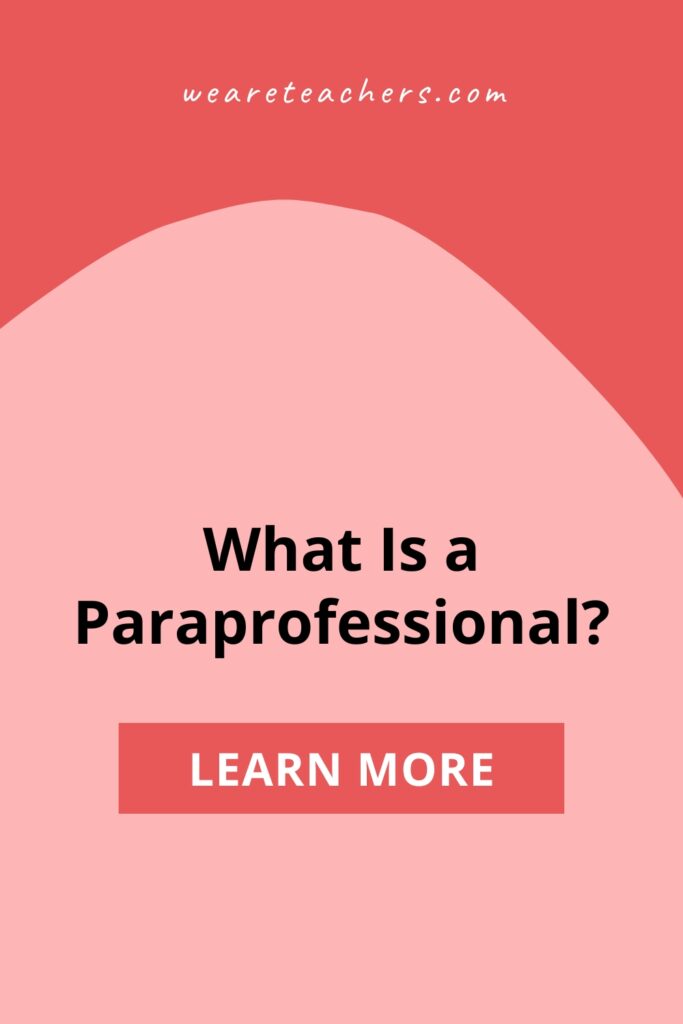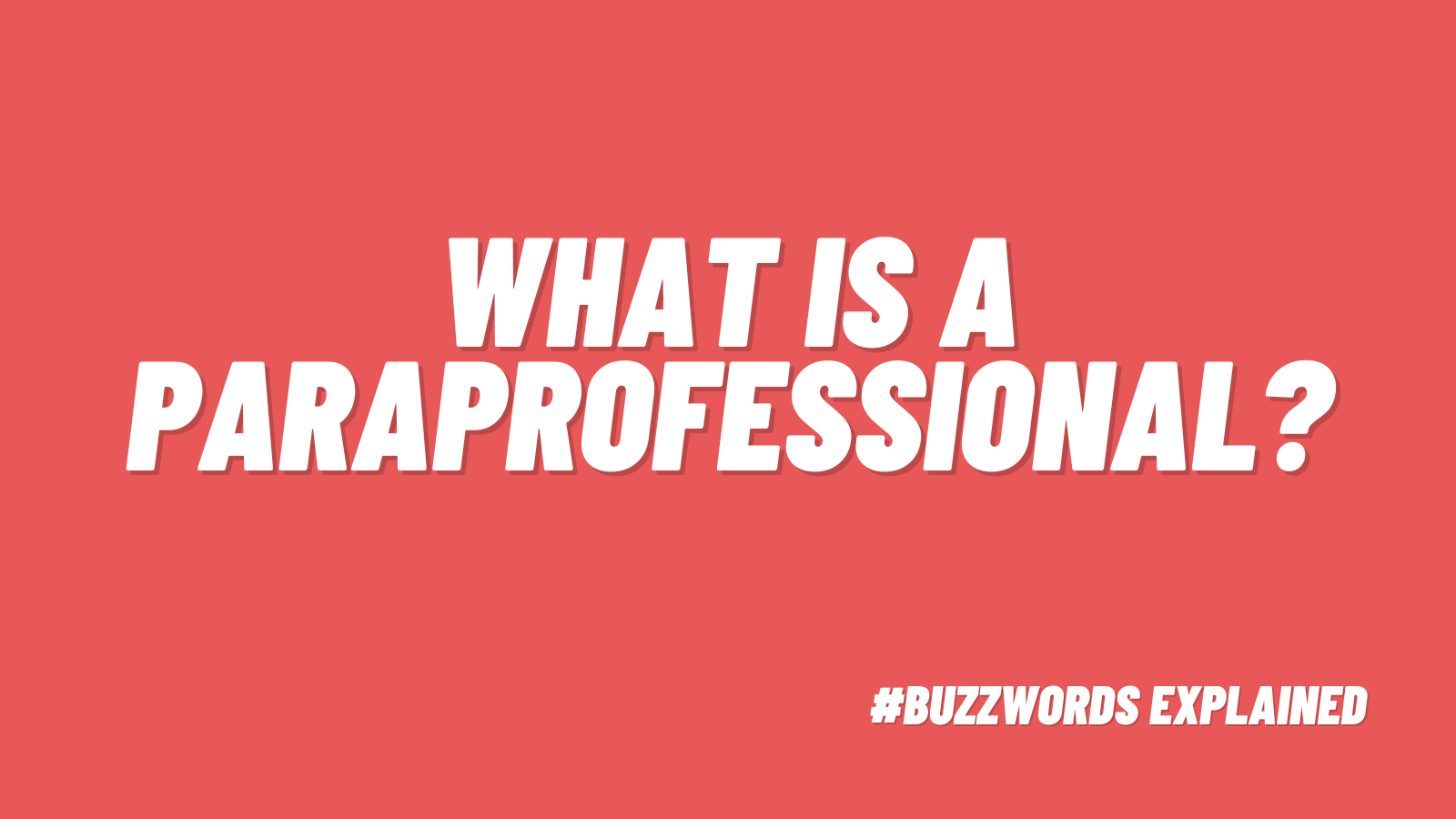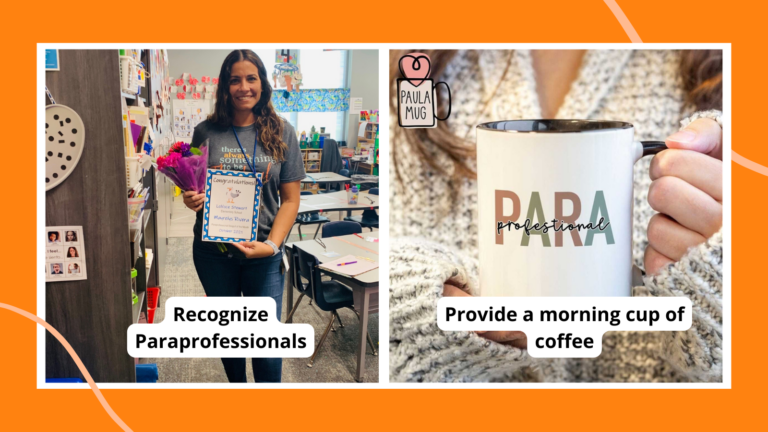Maybe you’re a classroom teacher with a paraprofessional assigned to you, or maybe you’re interested in becoming a paraprofessional. Either way, here is everything you need to know about this job that’s been called the “backbone of the classroom.”
What is a paraprofessional?
Paraprofessionals (also called paraeducators or teaching assistants or T.A.s) are often unsung heroes in classrooms. They do everything from prep lesson materials to manage behaviors to lead small groups. Paraprofessionals work under the supervision of a teacher and may not have the ultimate say in terms of what’s taught and how, but they are an integral part of a successful school day and year.
What are the types of paraprofessionals?

U.S. Navy Photo by Mass Communication Specialist 3rd Class Jeff Johnstone via Wikimedia Commons
There are two general types of paraprofessional jobs: general education and special education (and within special education there’s the paraprofessional and the one-on-one).
General Education Paraprofessional
A general education paraprofessional will support the entire class of students. So, whichever student needs support—tying a shoe, managing a conflict, sounding out a word—the paraprofessional can step in. And paraprofessionals support the classroom teacher with whatever needs to be done, whether it’s lessons that are laid out in the lesson plan or activities that need to happen on the fly.
In the general classroom, a paraprofessional could:
- Work one-on-one with students
- Help with grading, attendance, and making copies
- Help with classroom management
- Supervise students in hallways, playgrounds, the cafeteria, on field trips
- Support students with disabilities and special needs
- Help prepare for events like parent-teacher conferences or back-to-school night
- Set up classroom displays, help with classroom organization
Paraprofessionals are also used throughout school buildings for general support, like monitoring a lab, substituting classes, and monitoring students. The nice thing is that no two days are the same.
Read more: What does a teaching assistant do?
Special Education Paraprofessional (Classroom)
The main difference for the special education paraprofessional is the amount of involvement in students’ Individualized Education Programs (IEPs) and the demands of the classroom. Paraprofessionals are always monitored by the teacher, but the focus in a special education classroom will be more on the students’ IEP goals and supports, and the needs will be different depending on the students’ disabilities and needs. In a self-contained classroom, for example, a paraprofessional may help with toileting, adjusting students’ positioning in wheelchairs, and using an assistive communication device with a student.
In special education, paraprofessionals may:
- Modify or adapt instruction for students who require modifications
- Help implement student behavior plans
- Help implement lesson plans
- Support teachers when there is a behavior crisis
- Know the IEPs of the students they work with
- Participate in IEP meetings
- Work with individuals or small groups of students
- Help students with self-care tasks
- Keep records and monitor student progress
- Support students during related services like adaptive P.E., speech therapy, or occupational therapy
- Assist with parent-teacher nights
- Help with classroom organization
The list of “things in a day” is pretty broad. In reality, paraprofessionals help with all aspects of the school day. In special education classrooms, they have a lot of important knowledge about students and their needs, preferences, and communication that are vital for a child’s education.
Read more: What is special education?
Special Education Paraprofessional (One-on-One)
A one-on-one or instructional aide is a type of paraprofessional that is assigned to a specific student, typically a student who has a disability. If a child requires one-on-one assistance to learn in the school setting and it’s written into their IEP, then the paraprofessional assigned to them is there to help that student throughout the day with anything and everything.
Some things that a one-on-one could help with:
- Toileting and hygiene
- Monitoring for safety
- Providing one-on-one support during lessons
- Helping a child use an assistive communication device
- Helping the child move around the school building
What skills do paraprofessionals need?
Being a paraprofessional requires patience, flexibility, and communication skills. It’s rewarding and can be fun, but it’s not always easy. Paraprofessionals work with teachers who will have ideas about how to run a lesson or what a bulletin board should look like. They also work with administrators who need to ensure that every recess is supervised and every lunchtime is managed. And they’re working with students who have all kinds of personalities and needs.
Paraprofessionals are working with teachers, so the ability to take direction and feedback is important. Lastly, a basic knowledge of academics or the curriculum (knowing the Montessori philosophy to work in a Montessori classroom, for example) is important.
What are the benefits of being a paraprofessional?
Paraprofessionals get to work with kids without responsibilities like lesson planning and grading, and often without having to plan for and attend events like parent-teacher conferences and most professional development.
On the whole, paraprofessionals enjoy their work. In an Education Week poll, paraprofessionals indicated that they like their jobs. They liked the flexibility and felt like they were making a difference.
OK, but what are the drawbacks?
Paraprofessionals do a lot of “unseen work” and, like all of teaching, the wages often don’t line up with the amount of work required. In the Education Week poll, paraprofessionals indicated that low pay was a primary concern.
What does federal law say about paraprofessionals?
The Every Student Succeeds Act (ESSA), Title VIII, in 2015 introduced the term “paraeducator” into federal law. ESSA also laid out that paraprofessionals must be included in professional development and have the skills to help students make progress. In special education in particular, paraprofessionals must have the training necessary to work with students with disabilities. The ESSA law was the first time federal law has mentioned paraprofessionals, and it required states to pay attention to how paraprofessionals are trained.
Read more: National Education Association
How much do paraprofessionals make?
Paraprofessional pay differs from district to district (just like teacher pay). On ZipRecruiter, annual salaries for paraprofessionals range from $24,301 (West Virginia) to $35,627 (New Jersey).
According to Salary.com, special education paraprofessionals make slightly more; an average of $31,382 per year (range: $26,973 to $37,254).
What are the job trends for paraprofessionals?
Schools could not function without paraprofessionals, so it makes sense that the demand for paraprofessionals is increasing. Nationally the number of paraprofessionals has more than doubled between 1990 and 2018. It’s a good introduction to education for people who are interested in working in schools but don’t have a teaching license.
Paraprofessionals have also been impacted by changes in the demands of education, including covering for more staffing shortages since the pandemic.
Some states are working to increase the standards for paraprofessionals and, with that, the perception of the work. For example:
- Washington State has created a paraprofessional board that’s focused on establishing requirements and policies for paraprofessional development and advancement. In Washington, paraprofessionals can also earn certificates in special education or English-language learning and earn other advancements like being able to mentor others.
- In Ohio, the Partnership for Excellence in Paraprofessional Preparation (OPEPP) provides professional development for paraprofessionals and the teachers they work with.
For our part, we hope this increase in professionalism means an increase in pay.
Read more: Teachers Guide to Working With Paraprofessionals
Do you have insights to share about being a paraprofessional? Share on the WeAreTeachers HELPLINE group on Facebook

WeAreTeachers

